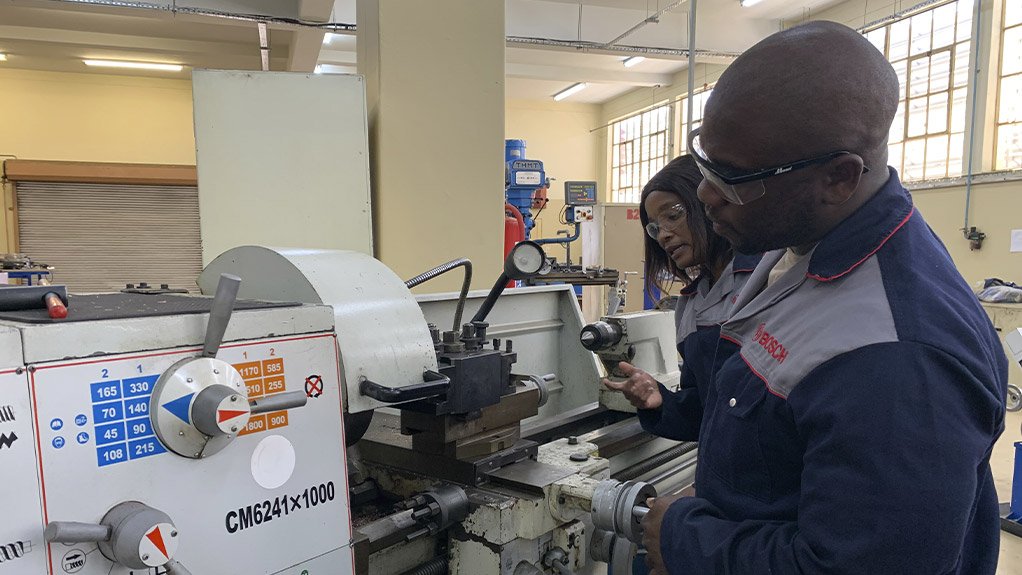
With increasing pressure to close the skills gap and provide much-needed jobs, artisans are an essential resource in developing and closing the unemployment gap and curbing the lack of technical skills in the country.
Robert Bosch South Africa’s (RBSA) automotive manufacturing facility, located in Brits, North West province, has over the years been actively driving a number of Manufacturing, Engineering and Related Services Sector Education and Training Authority (merSETA) workplace approval programmes, including apprenticeships, learnerships, experimental training, graduate specialist programmes and the “YES” programme.
Christine Phoko, Head of Training and Development says, “We are proud to announce that nine of our seventeen apprentices have now qualified as millwrights and fitter and turners between 2019 and 2020, with the balance currently undergoing their trade tests.” In addition to these trades, Bosch, together with other German companies in South Africa, have embarked on implementing the mechatronics vocational training program, which is a scarce skill in the country. Bosch has already placed two Mechatronics Apprentices.
“We have a Technical Training Center on site managed by our enterprise development partner, Mosebe, and our Technical Engineering department provides Mosebe with the required technical equipment,” says Phoko.
Louis Van Huyssteen, Training Director for the Retail Motor Industry Organisation (RMI) commends RBSA, who are long-term supporting members of the RMI, on the success of their training. Van Huyssteen says RBSA and the RMI associations collaborate regularly on numerous levels from workshops, training, parts distribution, and technical support to evaluation forums. “The relationship with RBSA is a strong and greatly valued one within the organisation as a whole and we are thrilled to be working alongside such a professional organisation that recognises and facilitates developmental training initiatives,” says Van Huyssteen. He says the RMI is particularly proud that RBSA is associated with the RMI and takes skills development and training seriously. “We particularly applaud the programme for Millwrights and Fitters and Turners. This has been the culmination of the efforts of Christine Phoko, one of RMI’s principle representatives on the newly established 6th chamber at MerSETA known as the Automotive Components Chamber.”
Phoko says it is important to understand the scarcity of skills and design programmes, which facilitate this. “On an annual basis, Bosch carries out a needs analysis giving consideration to the organisational needs and that of the industry where it considers what critical skills are needed. In collaboration with the Department of Labour, it sources potential candidates for the interviewing process. Newly appointed apprentices undergo a full induction program covering health and safety aspects, meeting the merSETA team and the plant management.
She says the organisation’s approach to training is unique in that they have a diverse and active skills development committee, which is representative of all key stakeholders including the trade unions. “The Committee works closely with Human Resources Training and Development and management/mentors in ensuring delivery of high level of quality training and this result in a win win for all parties involved,” concludes Phoko.